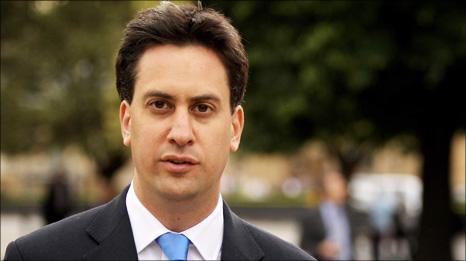Labour leadership: At-a-glance guide to the contenders
- Published
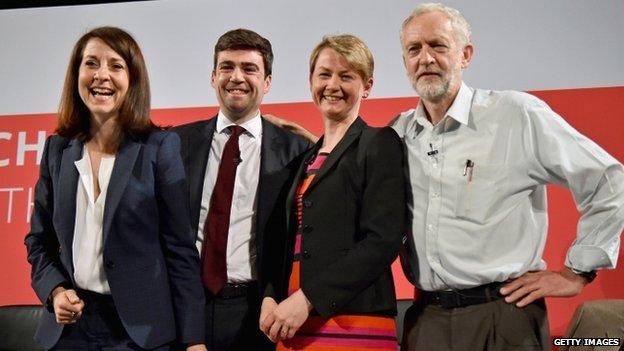
The candidates: Andy Burnham, Yvette Cooper, Jeremy Corbyn and Liz Kendall
Key dates: Ballot papers will be sent out on 14 August; voting can take place by post or online. They must be returned by 10 September. The result is on 12 September
Who can vote? All party members, registered supporters and affiliated supporters - including those joining via a union
The voting system? The Alternative Vote system is being used so voters are asked to rank candidates in order of preference
How does it work? If no candidate gets 50% of all votes cast, the candidate in fourth place is eliminated. Their second preference votes are then redistributed among the remaining three. If there is still no winner, the third place candidate is eliminated with their preferences redistributed. It is then a head-to-head between the last two candidates

Andy Burnham
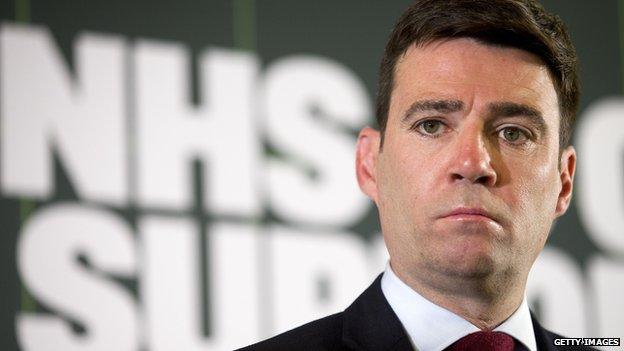
The Labour MP for Leigh since 2001, Andy Burnham has plenty of government experience.
He served as health secretary under Gordon Brown and previously as culture secretary and chief secretary to the Treasury.
He stood for the leadership in 2010 but lost out to Ed Miliband, going on to hold the shadow health brief under Mr Miliband's leadership.
Declaring his intention to stand, he said Labour must support the "aspirations of everyone".
Mr Burnham says he'll widen Labour's appeal by taking the party out of the "Westminster bubble", with a vision to helping "everyone get on in life".
Andy Burnham: Modern Labour 'couldn't have created NHS'
He has also pledged to take a tougher line on opposition to the government's welfare reforms, following a split within the party over its stance not to oppose the welfare bill.
Mr Burnham is married with three children. Before he entered politics he worked for a newspaper and a publishing company.

Yvette Cooper
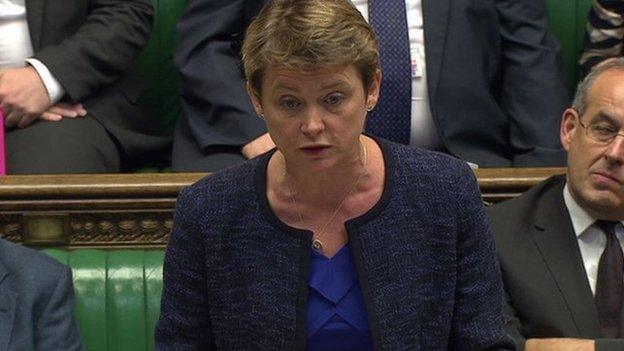
Another former chief secretary to the Treasury - as well as a work and pensions minister under Gordon Brown - Yvette Cooper has been shadow home secretary for the past four years.
A strong Commons performer, she has given Home Secretary Theresa May a hard time over matters including passport delays, border controls and extremism.
She did not stand to succeed Mr Brown in 2010 - her husband Ed Balls did.
Announcing her bid this time around, she said: "Our promise of hope wasn't strong enough to drown out the Tory and UKIP voices of fear. That's what we need to change."
She says she has the "strength, experience and progressive ideas" that Labour needs to win again, promising a "stronger" economy and "fairer, less divided society".
Labour car share: Yvette Cooper
She says she wants to combat child poverty, has pledged to campaign against government plans to limit future child tax credit to two children and to bring about a childcare and digital "revolution".
Ms Cooper is married to former Labour shadow chancellor Ed Balls, and the couple have three children. She worked as a journalist prior to her political career.

Jeremy Corbyn
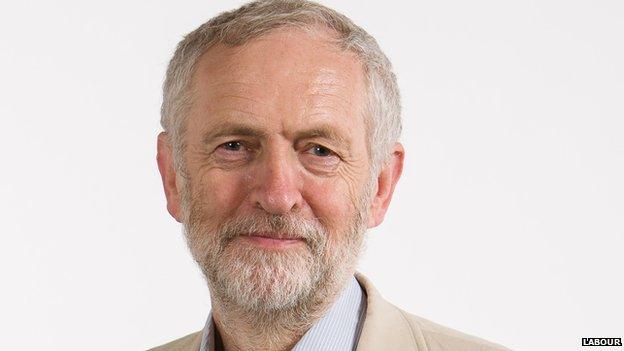
The veteran left-wing MP for Islington North entered the contest to get an "anti-austerity" voice into the debate on Labour's future.
The 66-year-old told his local newspaper, the Islington Gazette, he had decided to stand in response to an "overwhelming" desire among Labour members for a "broader" range of candidates.
After a last-minute scramble for nominations, he made it on to the ballot paper just before the deadline thanks to a number of MPs who did not want him to be leader "lending" him their nominations "to broaden the debate".
Mr Corbyn, who is promising to protect public services and increase taxes on the wealthy, was seen as a rank outsider, but support for his candidacy has risen significantly - with one poll putting him in the lead.
His campaign has received trade union backing, with Unite and Unison - Britain's two biggest unions - among those endorsing his candidacy.
Jeremy Corbyn criticises MPs' 'faux drama'
A vice-chair of CND and a columnist for the Morning Star, Mr Corbyn has frequently been at odds with his party over the past 20 years, opposing the Iraq war and other foreign interventions and backing public ownership of the banks. He also wants to scrap Britain's nuclear weapons programme, and tuition fees in England.
Mr Corbyn has been married three times and has three children with his second wife. He used to be a trade union organiser and a Haringey councillor, in London.

Liz Kendall
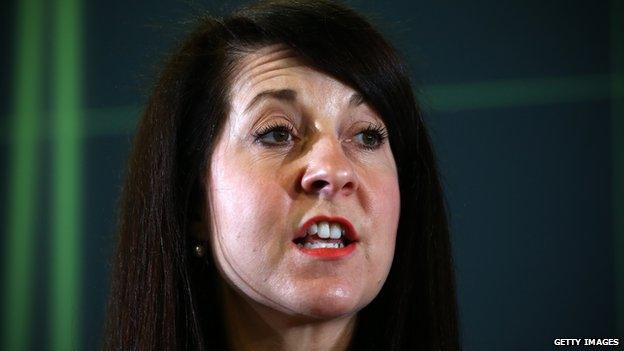
Shadow health minister Liz Kendall was the first Labour MP to say they wanted a crack at the party's top job, saying a "fundamentally new approach" was needed.
First elected to Parliament in 2010 as MP for Leicester West and appointed to the shadow front bench the same year, Ms Kendall is seen as a Blairite contender.
She is a former special adviser to Harriet Harman and then Health Secretary Patricia Hewitt who has argued for reform of public services.
Ms Kendall has acknowledged she is the "outside candidate" but says the party needs "a fresh start". She rejected calls to stand down from the contest and back another candidate to beat Mr Corbyn.
She says she'll regain the public's trust in Labour on the economy, promising sound public finances and protection of the poor and vulnerable. Her pitch stresses the need to make the party electable, saying that the party won't be able to help people if it is in opposition.
Labour leadership: Liz Kendall car share
Ms Kendall is not married and does not have children. She worked for two think-tanks: the Institute for Public Policy Research and the King's Fund, and was also a political adviser to Harriet Harman in the 1990s.

Deputy leadership contenders
At the same time, a election is taking place for deputy leader, with five candidates in the frame.

Ben Bradshaw
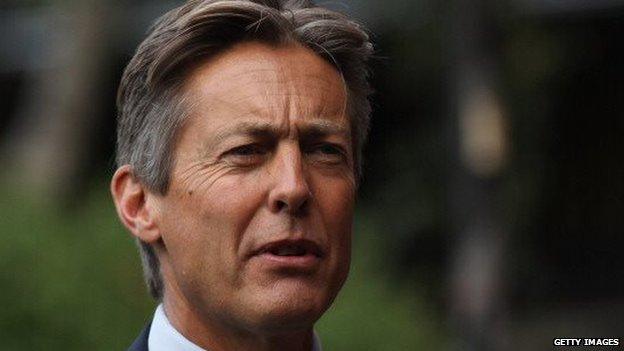
A former journalist and Labour cabinet minister, Ben Bradshaw has been the MP for Exeter since 1997.
He plans a "big tent" approach, external to ensure Labour does not miss out on votes in the south of England, saying the party has to "broaden its appeal".
Reflecting on who should replace Ed Miliband, he said: "I would prefer to see one of the new generation come forward rather than someone associated with the Blair and Brown era.
"If we really want to win in 2020 - and I think we need to for the country's sake - I would like to see someone from the new generation without that baggage from the past."

Stella Creasy
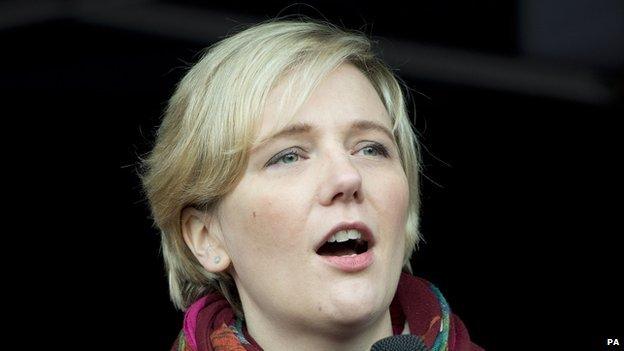
The Walthamstow MP has a growing reputation as a hard-working campaigning MP.
Another from the 2010 intake, she was praised for campaign against payday loans companies, and has a strong following on social media.
She told the Sunday Mirror, external: "Too many voters think Labour is no longer a movement for social justice but a machine that only kicks in to gear at election time."

Angela Eagle
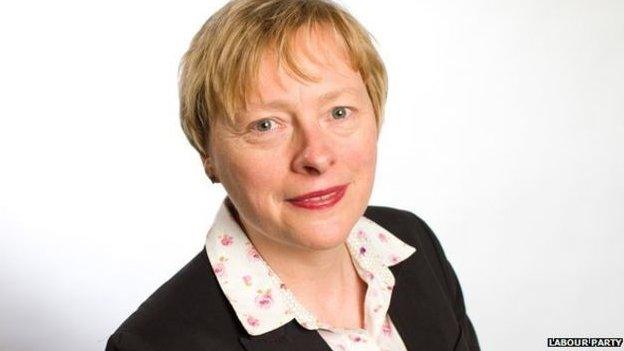
Shadow Commons Leader Angela Eagle plans to travel the country to speak to people who did the "hard graft" in the election campaign.
The MP for Wallasey said Labour could not be "complacent" if it was to reverse its general election defeat.
Ms Eagle, an MP since 1992, held a number of ministerial jobs during the last Labour government and in 2013 became chair of the Labour Party.
She is arguably best-known for having a twin sister, Maria, who is also a Labour MP.

Caroline Flint
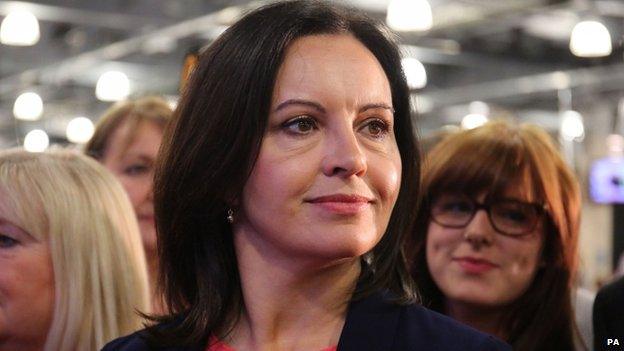
The MP for Don Valley has been Labour's shadow energy and climate change secretary since 2011, after a stint heading up the Department for Communities and Local Government.
Ms Flint held on to her current position in the latest shadow cabinet reshuffle.
She also held various ministerial positions during Gordon Brown's premiership, but famously resigned as Europe minister after accusing him of treating her and her female colleagues as "window dressing".

Tom Watson
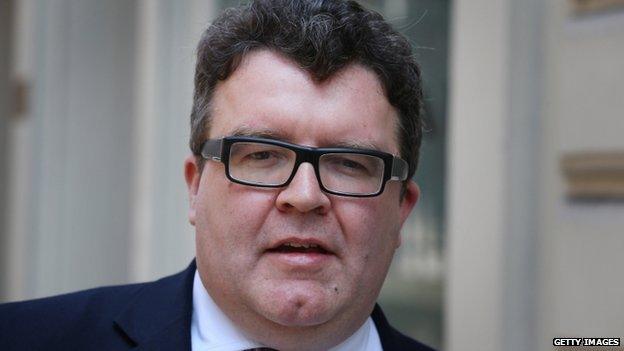
The MP for West Bromwich since 2001. He has made a name for himself as a prominent backbench campaigner against phone hacking and child sex abuse.
He also played a minor role in the toppling of Tony Blair after resigning as a defence minister and calling for the-then PM to quit in the interest of party and country.
Watson became Labour's campaign chief under Ed Miliband but he quit after a he became embroiled in a row about the role of the Unite union in the candidate selection in Falkirk.
Setting out his pitch for the job, he said: "I'm seeking the deputy leadership to do one thing: write and execute the election battle plan so that our new leader will be prime minister."

Labour candidate for London Mayor
Sadiq Khan was selected as Labour's candidate in next year's London mayoral race. He won 48,152 votes - a 58.9% share - in the fifth round of voting beating five other candidates.

Sadiq Khan - selected
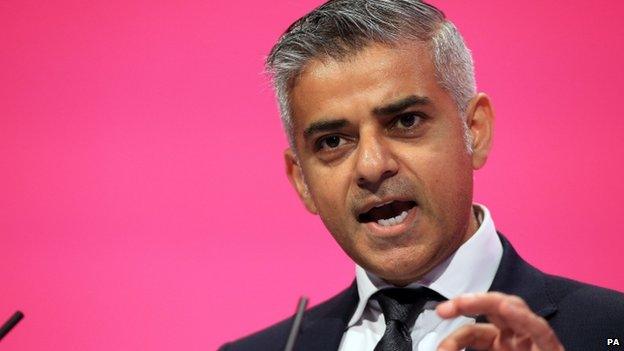
Sadiq Khan launched his bid to be London mayor with an attack on incumbent Boris Johnson, describing him as a "red carpet mayor, somebody who is fantastic going to openings, great with a flute of champagne in his hands".
The son of a bus driver, Mr Khan worked as a human rights solicitor before becoming an MP in 2005. He is shadow London minister.
A close ally of former Labour leader Ed Miliband, Mr Khan served in junior ministerial roles in Gordon Brown's government.
Mr Khan, the MP for Tooting, said his top priority if elected would be to tackle London's "housing crisis", ensuring "genuinely affordable homes to rent and buy".
Mr Khan said he would also focus on affordable public transport and confirmed he had changed his mind on the issue of a third runway at Heathrow Airport over air pollution fears, and would be campaigning against expansion.
Read more: Sadiq Khan: Labour's choice for mayor

Tessa Jowell - runner up
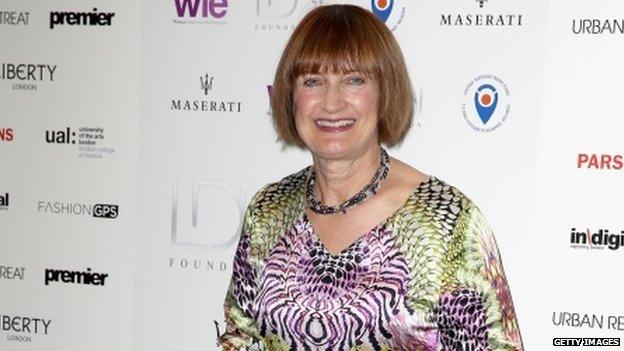
Ex-minister Dame Tessa Jowell was regarded as the frontrunner going into the contest, but ultimately came second with 41.1% of the vote in the fifth round of voting.
The former Dulwich and West Norwood MP, who stood down at the general election after 20 years in Parliament, earned widespread plaudits for the role she played in London's bid for the 2012 Olympics and her subsequent performance as Olympics minister.
The former culture secretary, who was a psychiatric social worker before entering politics, was a key figure at the heart of New Labour - she once said she would "jump under a bus" for Tony Blair.

Diane Abbott - eliminated
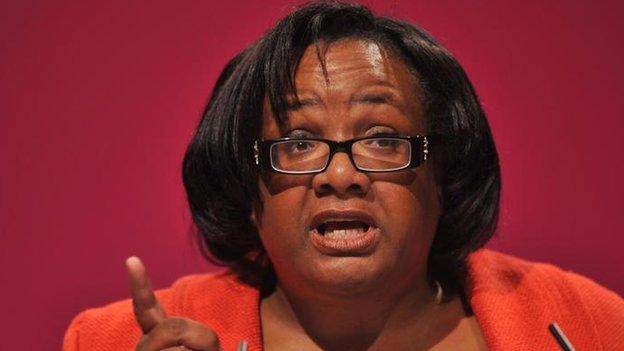
A familiar face to viewers of BBC One's This Week, Diane Abbott is a veteran left winger who first entered the Commons in 1987, as one of Britain's first black MPs. She came third in the vote.
The Hackney North and Stoke Newington MP was shadow public health spokesman under Ed Miliband, after losing out to him in the 2010 Labour leadership contest.
Launching her mayoral bid, she had said she would bring London's communities together and be the "genuinely independently minded Mayor that London needs".

David Lammy - eliminated
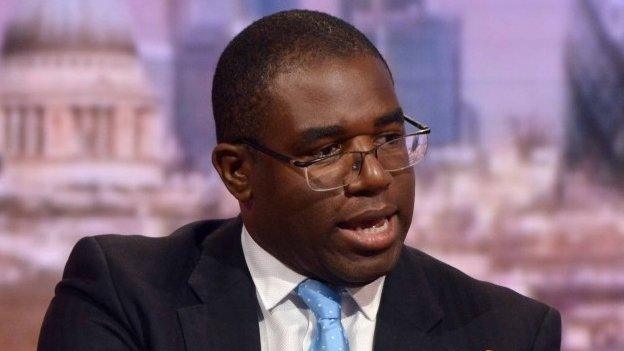
The MP for Tottenham, who placed fourth in the vote, was the first person to publicly weigh up a Labour leadership bid, telling the BBC that he would consider standing if colleagues wanted him to.
But he later ruled himself out of the top job, saying his principal aim was to become Labour's candidate for Mayor of London in 2016, saying "my strengths are in London and the south".
One of the most prominent black MPs in the party, the former barrister is regarded as being on the right of the party, having served as a minister under both Tony Blair and Gordon Brown.
His national profile rose during the 2011 riots in London, when he appealed for calm and reconciliation in the wake of the fatal shooting of Mark Duggan in his north London constituency.

Christian Wolmar - eliminated
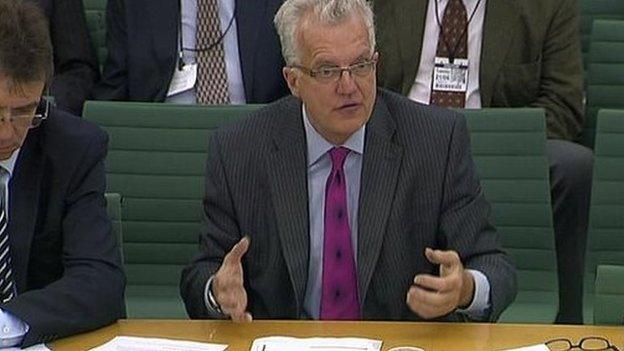
A journalist and railway historian, Christian Wolmar is one of Britain's most in-demand transport pundits, and was the only non-politician in the race. He came in fifth place, after David Lammy.
He said he would be an "ideas driven mayor", avoiding "partisan and personality politics" - and promised during his campaign to tackle London's "housing crisis", improve the transport network and revitalise public spaces.
The 65-year-old cycles to campaign meeting and claims to have clocked up more than 2,000 miles already.

Gareth Thomas - eliminated
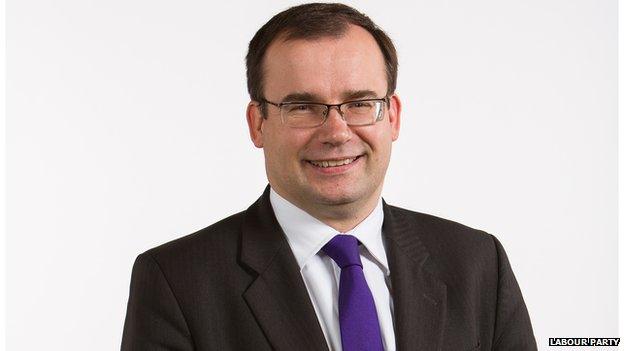
The MP for Harrow West came in last place after being eliminated in the first round of voting with 1.2% of the vote.
He had campaigned on a promise of more affordable homes, a better transport system and a living wage "that reflects the reality of living in our great city".
Mr Thomas is a former international development minister and chairman of the Co-operative Party.

The non-runners:

Mary Creagh - withdrew
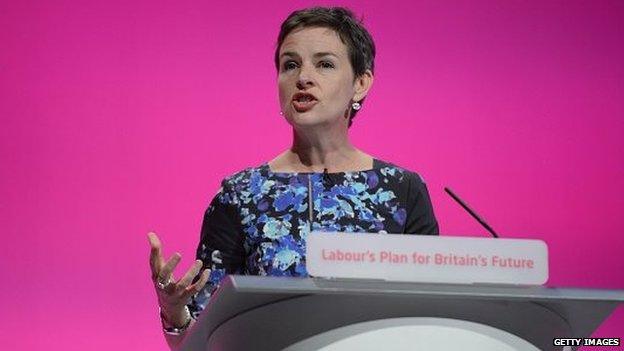
The shadow international development secretary announced her intention to join the race for the Labour leadership, via an article in the Daily Mail.
However, with fewer nominations than anyone else in the field - and short of the 35 MP nomination target - she pulled out of the contest on 12 June.
The Wakefield MP said she was "proud to have played my part" in the race but had decided to withdraw so her supporters could nominate another candidate.

Chuka Umunna - withdrew
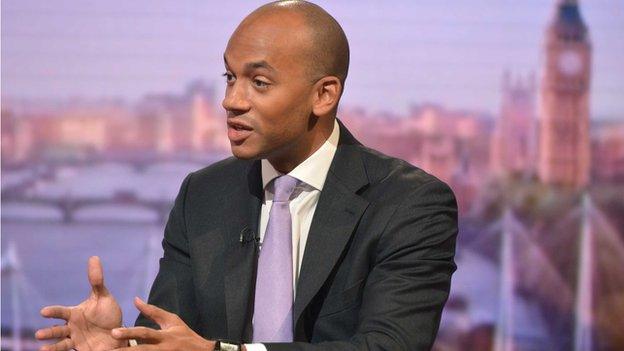
Chuka Umunna was the second candidate to declare he would stand for election as leader of the Labour Party.
A rising star of the party, the Streatham MP was first elected to Parliament in 2010 and appointed shadow business secretary the following year.
He announced his intention to stand via a post on his Facebook page, external. He said he had spoken to half the Labour 80 candidates standing in Tory seats targeted by the party and other MPs before making his announcement.
However, three days later Mr Umunna withdrew from the leadership contest. He said in a statement posted on his Twitter feed, external that had been uncomfortable with the level of "sheer pressure" and scrutiny that came with being a candidate.
The 36-year-old added that it had perhaps been "too soon" for him to launch a leadership bid.

Rachel Reeves - ruled out
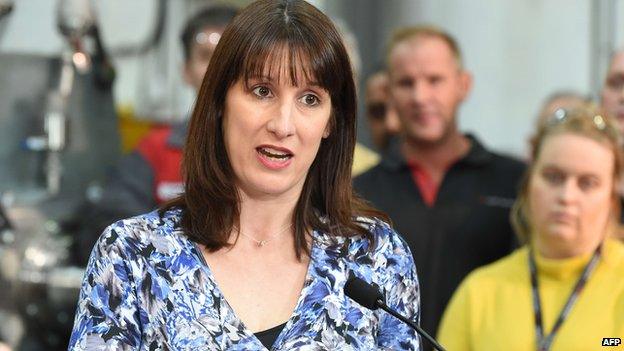
Another rising star of the 2010 intake, the MP for Leeds West was appointed shadow chief secretary to the Treasury in 2011 and shadow work and pensions secretary in 2013.
She told BBC News Labour needs "to be in the centre ground to win a general election" but ruled herself out of a leadership bid.

Alan Johnson - ruled out
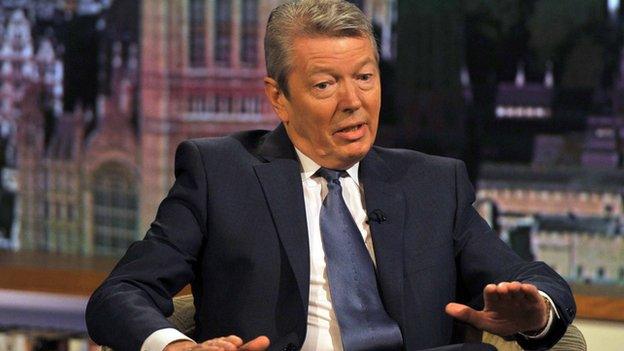
A former home secretary and shadow chancellor, Alan Johnson is the Labour leadership candidate who never quite was.
The popular MP declined to stand in 2010 and stepped down from his shadow cabinet role in 2011 for personal reasons.
Earlier this year it was reported , externalthat senior New Labour figures Lord Mandelson and Alistair Campbell approached Mr Johnson over a leadership bid, although all three later distanced themselves from the story.
But the former postman, who has been MP for Hull West and Hessle since 1997, had seemingly ruled himself out again, saying it is a "10-year job" and he does not have the "right qualities".

Dan Jarvis - ruled out
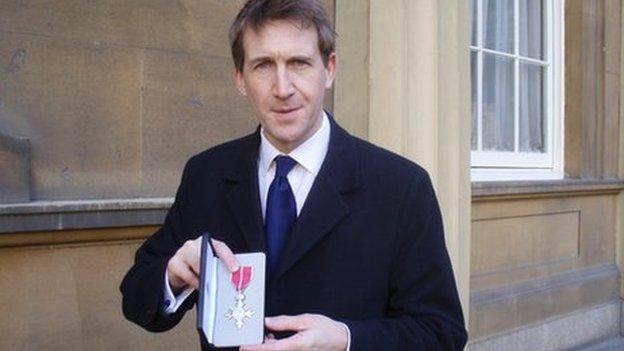
Former army officer Dan Jarvis was elected MP for Barnsley Central in a by-election in 2011, having resigned his commission as a major in the Parachute Regiment to contest the seat.
After entering Parliament in 2010, he quickly became a shadow culture, media and sport minister and later a shadow justice minister.
In 2011, Mr Jarvis became the first serving politician in more than 60 years to be awarded a military honour, when he was made an MBE for his services to the armed forces.
He has been touted by some colleagues as a future Labour leader but Mr Jarvis, who was widowed in 2010 and has a young family, ruled himself out, saying it is not the "right time" for him and his family.

Tristram Hunt - ruled out
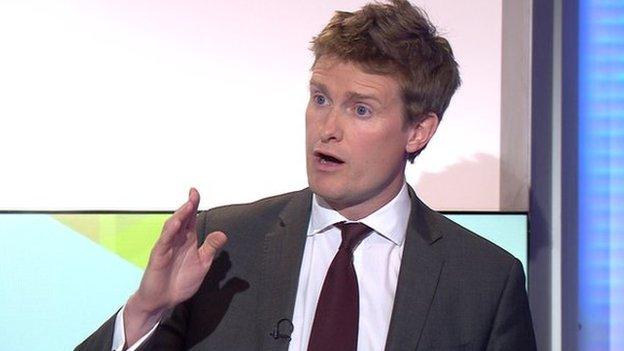
Historian and journalist Tristram Hunt entered Parliament in 2010 as Labour MP for Stoke-on-Trent Central and he became shadow education secretary in 2013.
Speaking in the aftermath of the election results, he called on Labour's ruling National Executive Committee "not to rush our election", saying there was time for a "brutal post-mortem" about Labour's "underlying philosophy and thinking".
As for his own ambitions, he said "it's about the lyrics as much as the lead singer I think".
He later said he was not confident of getting enough nominations to stand, and would support Liz Kendall.

Rushanara Ali - withdrew
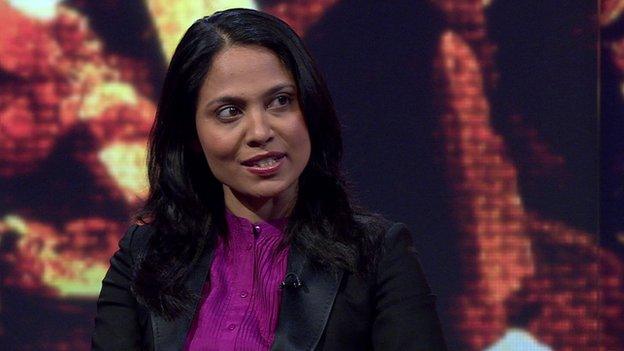
Rushanara Ali withdrew from the deputy leadership campaign shortly before the deadline for nominations after it became clear she would not garner enough support.
Her exit allowed her supporters to transfer their backing to other candidates to enable them to get onto the ballot paper. She was praised by fellow candidate Ben Bradshaw for her "incredibly selfless" decision.

John Healey - withdrew
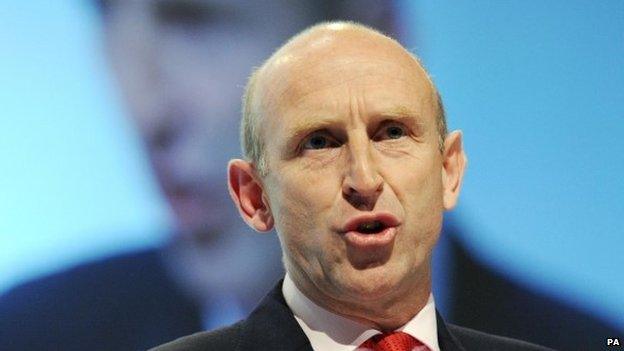
John Healey has pulled out of the race to be Labour's next deputy leader despite gaining the backing of 20 MPs, putting him within striking distance of the 35 needed to get on the ballot paper.
When he entered the deputy race he said he was concerned about how "narrow and shallow" the debate about Labour's future direction has been so far.
He now says he wants to give other candidates, from different wings of the party, a chance to be deputy. The 55-year old is backing Yvette Cooper for leader.

Gloria de Piero - withdrew
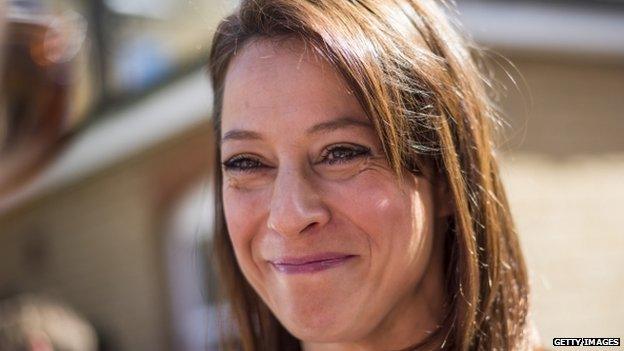
A former GMTV presenter, Gloria de Piero joined Parliament as the MP for Ashfield in 2010.
She immediately rose to shadow ministerial ranks, taking on a culture, media and sport brief and then home affairs. She expressed an interest in becoming deputy leader but withdrew early in the contest, instead backing Tom Watson.

Simon Danczuk - ruled out
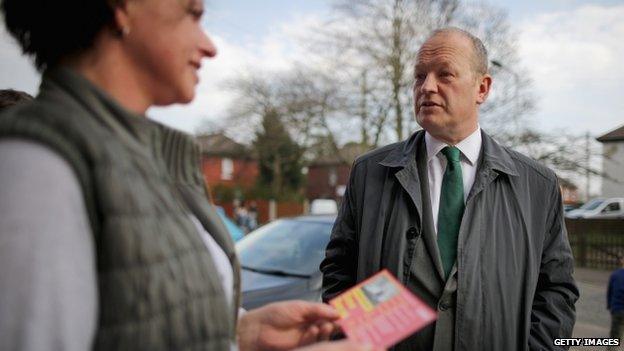
The MP for Rochdale says the deputy leader vacancy has "come a bit too soon" for him.
He previously said a number of colleagues had asked him to put his name forward for the role.
Mr Danczuk is well known for his prominent campaigning against child sex abuse and leading calls for an inquiry into allegations of historical child sex abuse by senior figures at Westminster.
He was a vocal critic of Ed Miliband and in an article for the Daily Telegraph on Thursday, external he said Labour needed to "step out if its Metropolitan comfort zone" and "reach out to the country once more."

Keir Starmer - ruled out
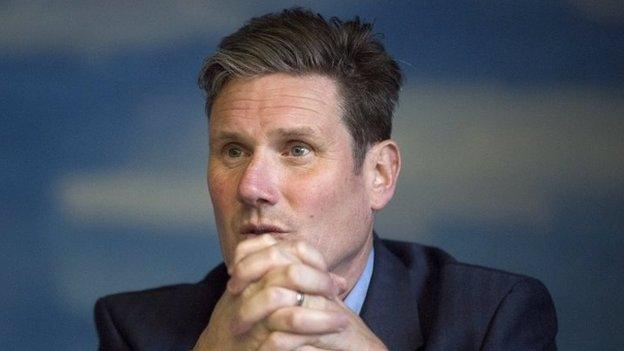
The former director of public prosecutions has only just become an MP after being elected in Frank Dobson's old seat of Holborn and St Pancras, in North London at the general election.
He was forced to rule himself out of the race to be Labour leader following a social media campaign urging him to stand.
He said he was "flattered" by the campaign but the party needed someone with "more political experience".

David Miliband - cannot stand in election
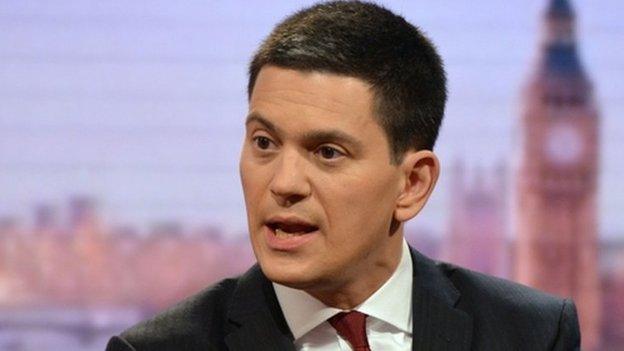
The older brother of ex-leader Ed, David Miliband was frontrunner to replace Gordon Brown in 2010, until his sibling beat him by a whisker.
A former foreign secretary and MP for South Shields, he was the Blairite choice for leader but eventually quit Parliament to become head of the International Rescue Committee charity in New York in 2013.
Speaking to the BBC from the US on the Monday after the general election, Mr Miliband criticised his brother's campaign in the 2015 general election, saying he and Mr Brown had "allowed themselves to be portrayed as moving backwards from the principles of aspiration and inclusion that are the absolute heart of any successful progressive political project".
While he acknowledged the two men were "brothers for life", he also confirmed he was not eligible to stand for the party leadership as he is not an MP.

Labour's election rules
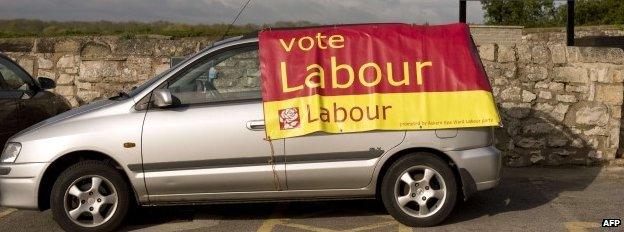
MPs wishing to stand as leader and deputy leader have to be nominated by 15% of their colleagues in the Parliamentary Labour Party to be eligible to stand.
As Labour now has 232 MPs, this means prospective candidates had to get at least 34 signatures. That means the maximum size of any field is six contenders.
Under rules agreed last year, all Labour Party members, registered supporters and affiliated supporters - including union members - will be allowed a maximum of one vote each on a one member, one vote system.
When the election is held, they will be asked to rank candidates in order of preference.
If no candidate gets 50% of all votes cast, the votes will be added up and the candidate with the fewest votes eliminated. Their 2nd preference votes will then be redistributed until one candidate has 50% of all votes cast.

- Published5 May 2015
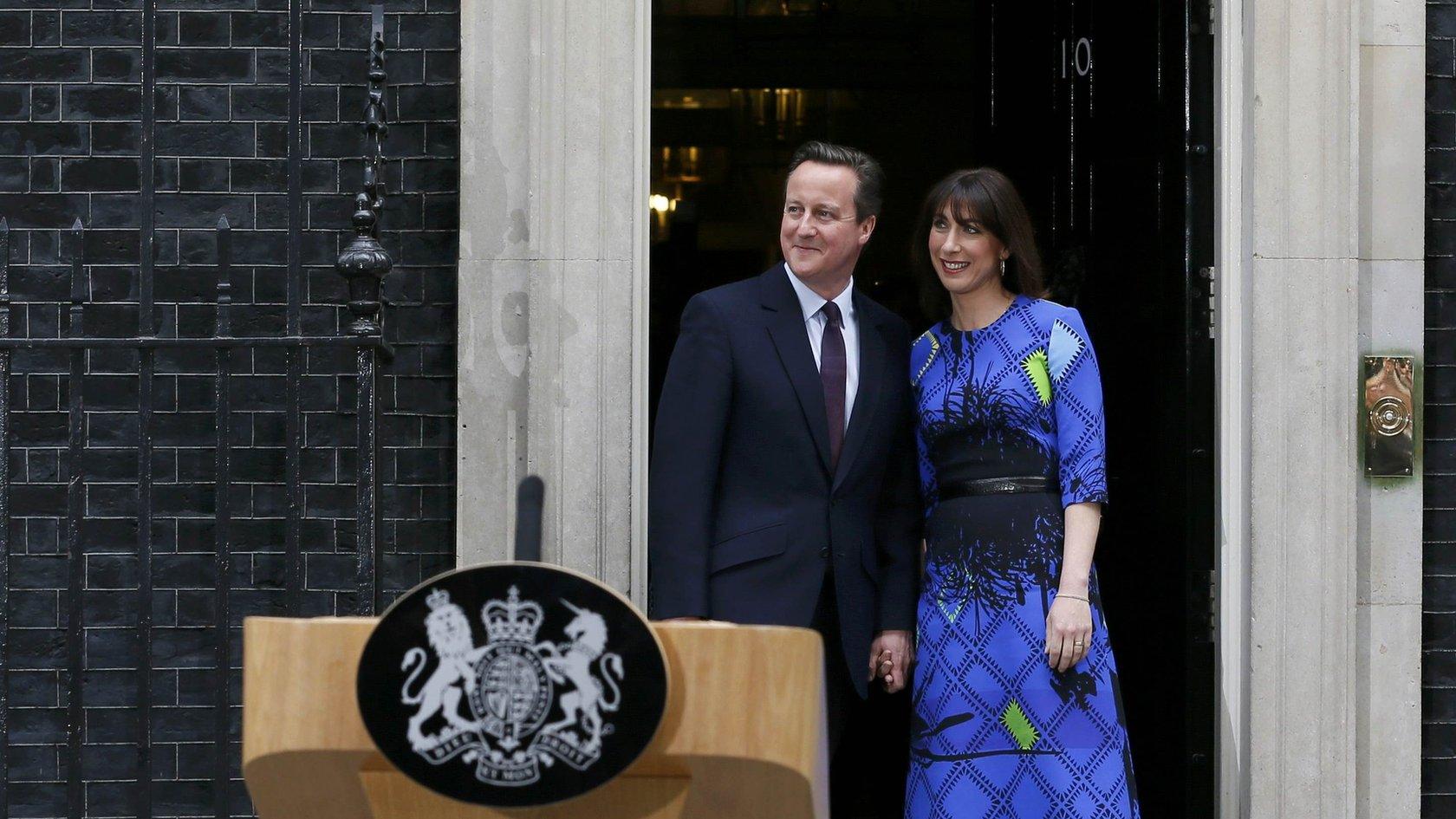
- Published8 May 2015
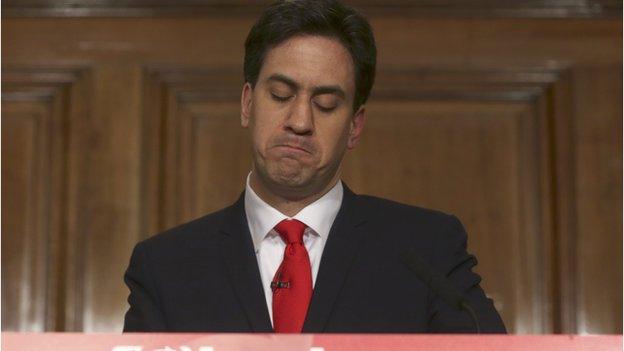
- Published8 May 2015
